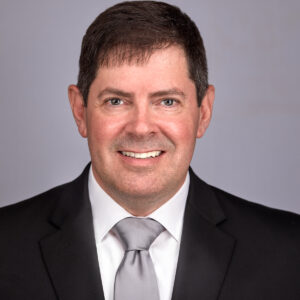Staff recognition: The result
Recognition is an important component of any organization’s total reward program. It motivates staff and inspires personal achievement. Tell your colleagues, coworkers, and staff how much you value them. A simple “thank you” is always appreciated. In fact, small surprises and tokens of your appreciation spread throughout the year help staff feel valued. And don’t forget to say “please” often. Social niceties do belong at work. A more homelike, welcoming, friendly atmosphere is what culture change is all about. Staff want to know if they are doing a good job—and that it is noticed. They want to be thanked and appreciated.
If your facility does not have an “employee morale” committee, get one in place. A representative from each department is best. Both management and hourly personnel should be included on the committee. A recognition program should be held at least quarterly by the committee. In addition, monthly awards give the staff something to look forward to and wonder “what’s coming next?” Individual recognition should be a part of an employee morale program. Honor a staff person monthly or quarterly. Request input from all staff. Place nomination forms by the time clock and on each unit. “Caught in the Act,” “Shining Star,” “A Step Above,” and “Hats Off to You” are all good themes for this type of program. The committee reads and reviews all submissions to pick a winner. Award a certificate, a special parking space, a free lunch card, movie tickets—whatever is appropriate for your facility’s budget. If you choose not to select just one winner, display all nominations on a special bulletin board where they can be seen not only by staff, but also by family members and residents as well.
It is proven that staff who feel appreciated are happy and that happy staff generally provide the best service, take pride in their work, and represent the facility in a positive way. Staff recognition should be an ongoing program. It doesn’t have to be costly. Make it fun and get everyone involved. Some of the simple things you can do include the following ideas:
Casual or dress-down days are always popular. Make it a fundraiser by adding a “charge for comfort.” Put the money into an emergency fund to help employees. (I suggest not doing this weekly because it loses its importance and is no longer “special.”)
Let staff dress appropriately for holidays such as red on Valentine’s Day; green for St. Patrick’s Day; red, white, and blue for the 4th of July; orange or black for Halloween.
Pass out something fun for everyone on special days. Give beads for Mardi Gras, leis for a luau event, or bandanas on Western Day. Be creative!
On National Doughnut Day, for example, treat all staff to fresh doughnuts. This can be done with any “food” day. We recently celebrated National Pizza Day with pizza for everyone. The dietary department provided salad, drinks, and dessert.
To celebrate 30 accident-free days, offer staff an afternoon treat such as ice cream bars, root beer floats, fresh baked cookies, or fruit.
Recognize a good survey by offering each staff person an extra day of paid time off.
For “back to school” fun, have staff bring in grade school pictures of themselves. Post on a bulletin board and have staff, residents, and family members guess who they are. A small prize can be given to the person who gets the most right, such as an issue of People magazine.
Almost everyone appreciates food. Take staff to lunch for birthdays, special occasions or for no particular reason at all. Let your guest pick the restaurant.
Annual events
Special programs held each year give staff something to look forward to. These events can generate friendly competition among departments. Put on a variety show with each department being responsible for an act. Residents, family members, and volunteers can be involved as well. You might want to have judges and award prizes. Print a program recognizing everyone who participates, including the sound technician, photographer, props person, stagehands, and emcee. Acts can be serious talent or fun karaoke, original poetry, bands, lip sync—whatever.
Base an event on a game show theme. Try a Family Feud-type game. Have different departments compete against each other. Treat the winning team to lunch or give them movie tickets or tee shirts. The Newlywed Game is another program that is easy to adapt. Have a department head and one of his or her employees team up. See who knows the most about their supervisor/staff.
An annual dog show during the “dog days” of summer is another great idea. Residents, staff, family members, friends, and volunteers are recruited to enter their dogs. Invite a guest emcee from a pet store, a veterinarian, a groomer or, if you are really lucky, you might find a dog judge. The Web listings of dog rescue organizations can help you find people to participate. Present each dog with a certificate—either just a participation certificate or for a specific category such as happiest dog, biggest dog, “most likely to walk my owner” dog, best-dressed dog, best lap dog, and so on. The dogs could be given bags of “bones” or a play toy. You can probably get these prizes donated. Be sure to have a program so everyone can follow along as the dogs are being shown. Develop the program thoroughly and give each participating dog owner an instruction sheet ahead of time.
A cooking contest is a hit with both residents and staff. You might want to have a seasonal focus. In January, for example, have a soup or chili competition. Other easy-to-judge foods are spaghetti sauce, bread, pie, fudge, and cookies. Each neighborhood or unit of residents can make an entry, as well as staff. Have residents, staff, and family members taste each entry and they can cast their votes by placing a ticket in front of their favorites. Ribbons are good prizes for this contest and display the results on a poster for all to see.
Just for employees: Here’s an idea that is always a winner. Once a month celebrate a Treat Tuesday. Match up departments or employees who don’t normally work together as a unit and have this team provide gooey, healthy, or scrumptious treats for the rest of the staff. It’s a great mixer, an opportunity to show off culinary skills, and a morale builder—to say nothing of the “sugar high!”
A final word
When you recognize people effectively, the actions and behaviors you most want to see are reinforced. An effective staff recognition system is simple, immediate, and can be powerfully reinforcing. Staff feel cared about and appreciated. It may seem simplistic, but people who feel recognized and cared about produce more and better work. The simplest of all recognition is easy, don’t just say “thank-you,” write a note to express your appreciation. The secret to its effectiveness, is to “do it in the moment.” Make it a priority to do it immediately.
Brenda Scott, ADC, serves on the National Association of Activity Professionals (NAAP) Board as the Special Needs/Education Outreach Trustee. She has been working with the geriatric population for over 20 years. Currently the Event Coordinator at Shalom Park, a CCRC in Aurora, Colorado, Scott has a Certificate in Gerontology and is certified as an Activity Director by the National Certification Council for Activity Professionals (NCCAP). Scott has presented many workshops nationally.
For more information, call (303) 698-4445 or e-mail bjscott@comcast.net. To send your comments to the author and editors, e-mail scott1008@iadvanceseniorcare.com.
Sidebar
The National Association of Activity Professionals (NAAP) was founded in 1982, and is the only national organization that exclusively represents Activity Professionals working primarily in geriatric settings. NAAP provides opportunities for professional development and personal growth through national and regional conferences that offer a variety of topics and numerous hours of education. NAAP has established partnerships with allied organizations, governing bodies, consumer groups, regulatory agencies, and provider groups. They continuously work toward uniform Standards of Practice for all Activity Professionals working with elders. For more information, contact the NAAP Office at (865)429-0717, e-mail thenaap@aol.com, or visit https://www.thenaap.com.
Sidebar
Special note:Activity professionals can plan many of these events. The rewards will include greater staff morale and cooperation with/by other departments. You’ll soon find much more help with transporting residents, having residents ready, and volunteers for special outings and events.
Long-Term Living 2008 October;57(10):28-30
I Advance Senior Care is the industry-leading source for practical, in-depth, business-building, and resident care information for owners, executives, administrators, and directors of nursing at assisted living communities, skilled nursing facilities, post-acute facilities, and continuing care retirement communities. The I Advance Senior Care editorial team and industry experts provide market analysis, strategic direction, policy commentary, clinical best-practices, business management, and technology breakthroughs.
I Advance Senior Care is part of the Institute for the Advancement of Senior Care and published by Plain-English Health Care.
Related Articles
Topics: Articles , Facility management , Leadership











